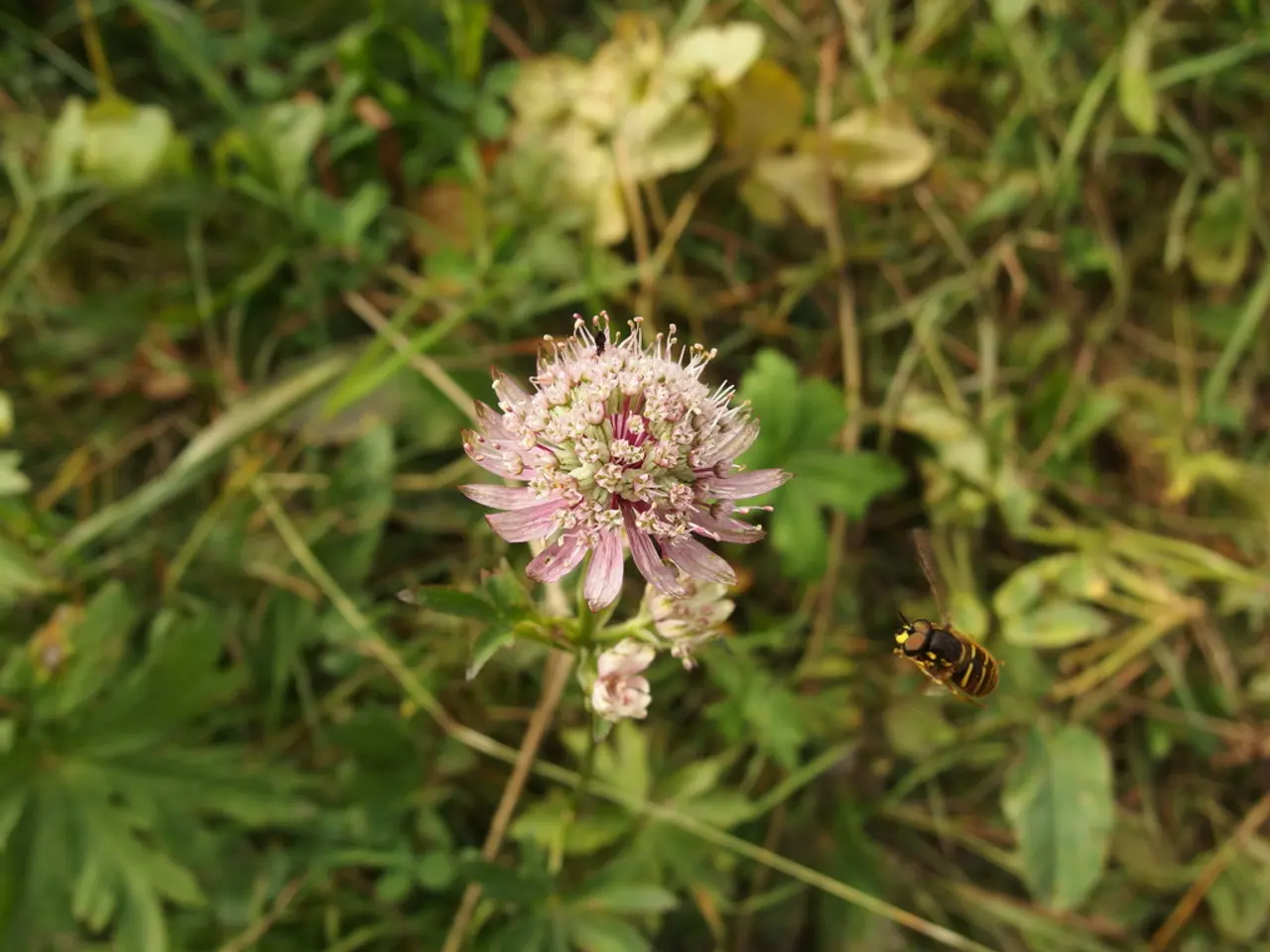Strategies for Maintaining Chemical-Free Produce in Your Garden Without Pesticides
Container gardening is a popular way to grow fresh produce right at home. However, pests can pose a significant challenge to these gardens. Fortunately, there are several chemical-free strategies that can help maintain a healthy and pest-free container garden.
Natural Repellents and Botanical Insecticides
Using natural repellents and botanical insecticides is an effective way to deter pests. Neem oil, garlic, and chili water sprays are just a few examples of these eco-friendly solutions that help ward off pests like aphids, mites, slugs, and soft-bodied insects, without harming beneficial organisms or the soil [1][3][2].
Companion Planting
Companion planting is another smart approach to pest management. By planting multiple species together, you can confuse or repel pests naturally, enhancing biodiversity and pest resistance [3]. For instance, basil planted next to tomatoes helps deter whiteflies and aphids, while chives are beneficial when planted with carrots. Marigolds keep aphids and nematodes at bay when planted alongside vegetables, and nasturtiums are beneficial when planted with cabbage [2].
Physical Barriers and Substances
Physical barriers and substances like diatomaceous earth offer a safe and effective solution for pest control. This natural substance physically injures pests (e.g., small insects) but is safe for beneficial insects and the broader ecosystem [2].
Sanitation and Maintenance
Maintaining a clean garden is crucial for pest control. Regularly removing infested plant material and cleaning tools reduces pest presence and disease spread, supporting healthy plant growth [5].
Attracting Natural Predators
Attracting natural predators that feed on harmful insects is another key strategy for maintaining a balanced garden environment. Ladybugs and lacewings, for example, are beneficial insects that control aphids and thrips, respectively [1].
Other Strategies
Handpicking pests, providing shelter for insects, mulching garden beds, and cleaning up fallen leaves and debris are other effective methods for managing pests in container gardens [4]. Steering clear of pesticides helps protect beneficial insects and wildlife, contributing to a sustainable future [6].
In conclusion, these chemical-free strategies effectively promote healthy container vegetable gardens by reducing pest damage, improving soil vitality, and preserving beneficial insect populations essential for pollination and natural pest control [1][3][5]. Organic pest control is safe for families and pets, and it helps the environment by not contributing to pollution or harming beneficial insects like bees and butterflies. By adopting these methods, you can enjoy a thriving container garden while promoting a sustainable future.
References:
[1] https://www.gardeningknowhow.com/garden-how-to/pests/organic-pest-control.htm [2] https://www.gardeningknowhow.com/garden-how-to/pests/natural-pest-control.htm [3] https://www.gardeningknowhow.com/garden-how-to/companion-planting/companion-planting-basics.htm [4] https://www.gardeningknowhow.com/garden-how-to/pests/organic-pest-control-methods.htm [5] https://www.gardeningknowhow.com/garden-how-to/soil-fertilizers/organic-pest-control-methods.htm [6] https://www.gardeningknowhow.com/garden-how-to/soil-fertilizers/organic-gardening-methods.htm
- Embracing a home-and-garden lifestyle that includes container gardening can be made more sustainable by using natural repellents and botanical insecticides, such as neem oil, garlic, and chili water sprays, for pest management.
- To further support a healthy and pest-free container garden, incorporating companion planting and maintaining proper garden sanitation can help promote biodiversity and natural pest control.




